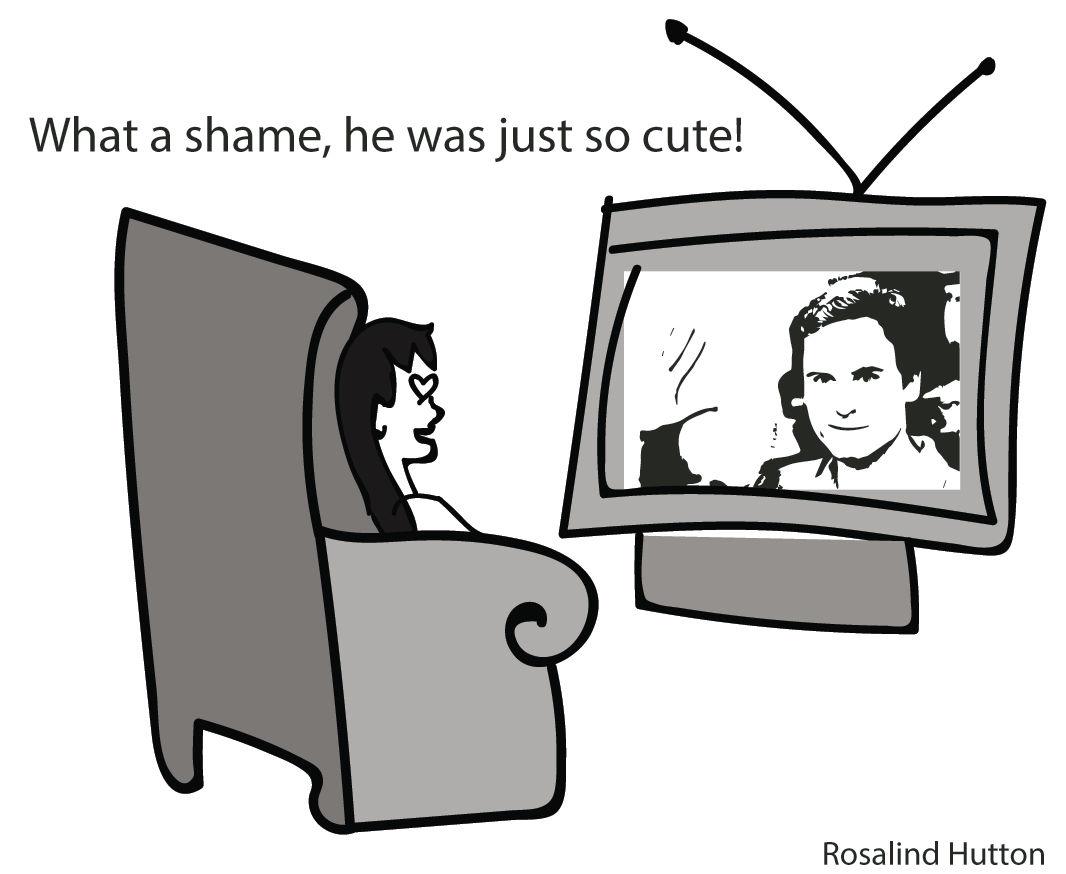The true crime community is one of the most dedicated groups of people I have ever found myself involved with. It branches deep into this dark, seedy side of humanity for no true or explicable reason. Perhaps it stems from a morbid curiosity of what makes a person commit an act of pure atrocity, or maybe it stems from trying to understand something they fear.
These fans dive headfirst into a world they are not from, often seeking answers to unanswerable questions. This research tends to lead to two different results: people who are curious and people who find a sense of admiration for those they are researching.
There have been many groups I have joined on social media that ask the same question any time someone new introduces themselves, “Who is your favorite serial killer?”
This question never settles well with me. The question seems to award a sort of praise to a person who committed an ultimate act of evil. It blurs that line between curiosity and admiration.
As far as curiosity is concerned, it leads you toward discussions and research of understanding the “why,” trying to understand something a person should never be able to do, looking into the reasons different people committed the acts, and trying to find the connection between them. Admiration, however, takes this curiosity and adds a sense of forgiveness for the atrocities committed.
This is not to say being impressed by the way something is done is bad. Watching the precision of execution when it comes to anything from jail breaks to home invasion is often remarkable, but trying to excuse what they have done because they did it so well, or were so charming or handsome, can lead to problematic results.
Getting tattoos, wearing their faces on t-shirts and generally being upset they were caught and were not continuing their sickening journey, generally falls into the realm of admiration. Giving these people a platform for other impressionable people to enjoy or learn from is not only dangerous, it is stupid.
When it comes to mass shootings, there is a media obsession that begins a dangerous cycle. The event happens, the person’s face is plastered on TV, their name is said repeatedly, the victims tend to fall to the wayside and other people who have the same qualities of loneliness and narcissism see this and follow suit.
For years, I have stood by the belief that the media should not name the perpetrator of mass shootings, they should not show their image and they should not put it on rotation for days at a time. The only acceptable exception is if that perpetrator has gotten away; but when the dice have fallen, it is time to stop.
In fact, according to the American Psychological Association, research shows given the symptoms shown by perpetrators of mass shootings, responsible media coverage could lead to a reduction of these crimes by one-third. It is sickening to see mass media outlets choose to sacrifice responsible reporting to keep eyes glued to the TV screen.
This extends past the concept of mass media and to our homes as well. Docuseries downplay the actions of these sick individuals with an objective to seemingly get you to side with them. Movies like “Extremely Wicked, Shockingly Evil, and Vile,” which according to Matt Patches of Polygon is essentially “a rockstar biopic for a serial killer,” make the subject seem like this larger-than-life heartthrob.
It completely seems to negate the reason the true crime community spends hours researching, reading and listening to find some semblance of understanding for a world in which they are just tourists. The objective is to research and learn what morbid, evil beings there are in the world, and try to figure out why somebody can act on these impulses. It is to look at the harmful nature of the actions committed, and see the impact on the victims, their families and communities. To go against this foundation and cross the line into admiration is wrong and disrespectful, and it minimizes the impact of the actions on everyone involved.
So next time you load up social media to talk about how much one of these people inspired you, or discuss how they are your favorite, take a moment to ask if anything you are saying is putting their actions on some sort of pedestal. If you are interested in learning about any of this, just find a case, go to your library and grab a book or load up a podcast and get to learning. You never know what you might discover.
We need to talk about the way we approach true crime
Donate to The Reflector
Your donation will support the student journalists of Mississippi State University. Your contribution will allow us to purchase equipment and cover our annual website hosting costs.





















































































